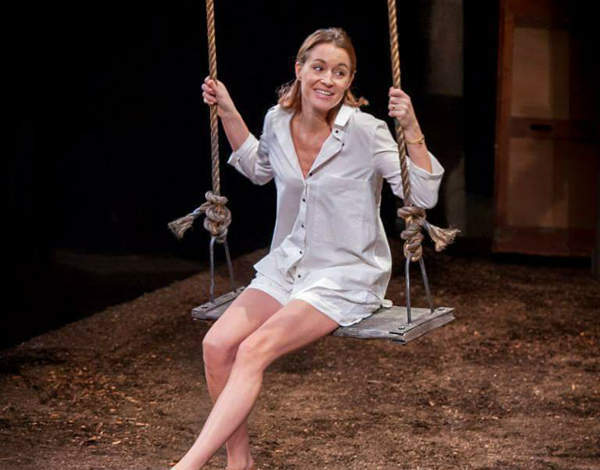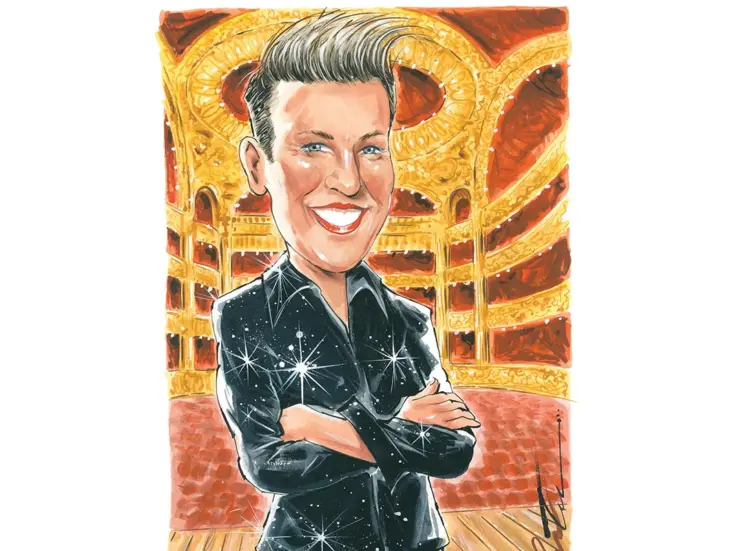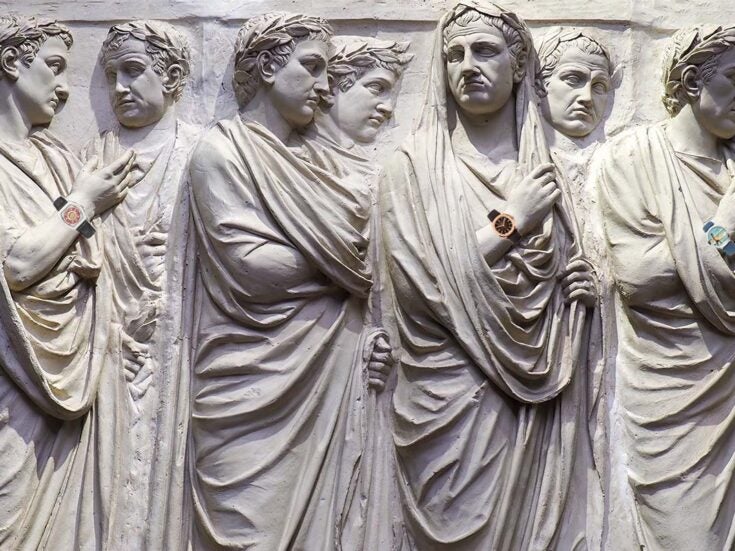

To the West Yorkshire Playhouse for a newly ‘recycled’ version of Uncle Vanya – set in a forest of telegraph poles – which opened last week. The play has been cleverly and wittily adapted by Samuel Adamson, an old Chekhov hand who has previously adapted The Three Sisters and The Cherry Orchard.
I use the word recycled above not to suggest that there is nothing original about Adamson’s version but rather because the recycling of love, fate and above all our own ever-diminishing supply of human energy is at the very heart of this beautiful play. That Uncle Vanya is one of Chekhov’s most adapted plays suits this new Arden-like take, which is Elizabethan in its forest heart.
Turning the forest almost into a character in the play, with a set that uses aged telegraph poles, immediately places the play in the universal realm. The idea of the forest as a playground for human folly and the senses is as old as the Bible and the Garden of Eden. For Shakespeare, the forest of Arden is the playground that divides Court and Country.
Indeed, one of Uncle Vanya’s themes, of course, is whether it is better to live in the country or town, with the vain, socially mobile and conceited Professor Serebryakov (played well by John Bett) wanting to sell the estate, belonging to his first wife’s family, in order to pay for his haute bohemian city lifestyle.
His patronising contempt for the true values of the country, and the needs of his inherited family, are offset with exquisite sensitivity by his glamorous, much younger and beautiful second wife Yelena, played by Georgina Rylance (pictured top). Rylance’s edgy performance is the play’s stand-out role.
A major London theatre part must be close. Unable to express her true emotions, as everybody else’s dysfunctional emotions break down, Rylance has to keep her heart in check. She is able to give a sense of her own pain and personal tragedy in marrying the ghastly professor, without so much as saying a word. One is reminded of the golden caged fate of Isabel Archer in Henry James’s Portrait of a Lady, after she married the conceited dilettante Gilbert Osmond.
A self-loving academic married to a younger wife who lives off his first wife’s family, Uncle Vanya is a play about men ‘past their prime’, and it is a brutal play that offers little hope to the problem of getting old. How Serebryakov – with his academic fame and useless books – managed to ensnare the beautiful Yelena is a theme that baffles all the cast.
Both Uncle Vanya – the professor’s first wife’s brother (played convincingly by David Ganly) who has been running the estate – and Dr Astrov, the local doctor (in a strong performance by Ryan Kiggell) who has become a committed tree-hugging environmentalist, are in love with Yelena. Both men are doubtless more worthy than the conceited professor.
But he wins her. Such is life. Whoever said life was fair, bitterly asks Chekhov. The most unlucky and unloved is poor Sonya – a tricky part played with subtle understatement by Dorothea Myer-Bennett – who thinks that her looks count against her. Well they do, says Chekhov. Life is not fair.
Who says plays can’t have second lives? Uncle Vanya is itself a recycled play. After the 1889 flop of The Wood Demon, Chekhov thinned out the characters and rewrote the play as Uncle Vanya, one of the seminal early plays of modern drama. This is a production worth travelling to Leeds to see. The tree-hugging theme is not just a gimmick. This Court v City take on Uncle Vanya works.
In the end, this is a play about money and greed and the emptiness of the modern soul. When the professor announces that the solution to the family problems is to sell his wife’s old estate so that he and Yelena can enjoy the good life in the city, we see how jaundiced the modern soul has become. The professor represents the Fall of Arden, and the telegraph poles are mark out the polluted environment of the modern soul, and the lust for life in the modern city.
As the play ends, one is reminded of the bleakness of Beckett. Sonya finally breaks: ‘We’ll put up with everything fate throws at us, patiently; we’ll work for others now and when we get old without rest; and when out time comes, we’ll die without complaining and beyond the grave we’ll say we suffered, we cried, we had, and God will take pity on us.’
But will he? The final line – ‘We’ll rest’ – leaves the audience thinking there is a long journey ahead into the forest yet. We are left with what the TS Eliot scholar Nathan Cervo, writing about the emotional weather of The Love Song of Alfred Prufrock, once referred to as the ‘infernal version of the forest of Arden’.
Uncle Vanya runs at the West Yorkshire Playhouse until 21 March








